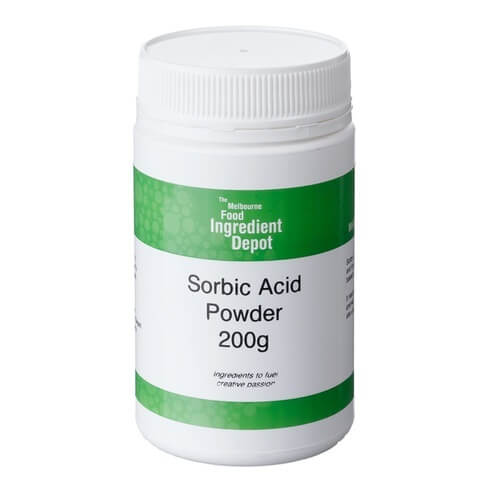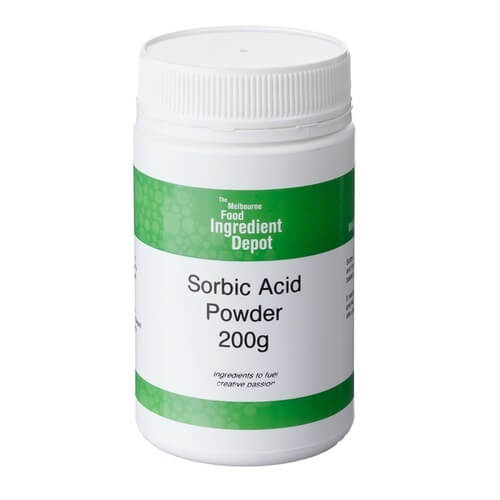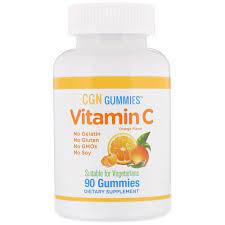Sorbic acid is a white, crystalline chemical compound that is used as a preservative in food and cosmetics.
It is also known by the names 2,4-hexadecenoic acid and 1-sorbic acid.
Sorbic acid is naturally occurring in some berries, but it can also be produced synthetically.
When used as a preservative, it helps to prevent the growth of mold, yeast, and bacteria.
Sorbic acid is particularly effective against molds, making it a popular choice for preserving products such as cheese and baked goods.
In cosmetics, sorbic acid is used as a pH regulator and skin-conditioning agent.
It can also help to reduce the signs of aging by preventing the breakdown of collagen and elastin.
Is Sorbic Acid Safe For Dogs?

Sorbic acid is a commonly used food preservative with a long history of safe use.
As long as the recommended quantities are maintained, sorbic acid will have no side effects in dogs.
It is typically used with its salt (potassium sorbate) and the recommended amounts are 3400 mg/kg of potassium sorbate with 2500 mg/kg of sorbic acid for both dogs and cats.
Other pets like pigs and other bigger animals may be okay with higher concentrations.
The antifungal and antimicrobial properties of sorbic acid make it a great preservative for dog food because it helps to preserve the ingredients and prevent mold from growing.
Even though sorbic acid is relatively safe, there are some concerns that its salt (potassium sorbate) may cause irritation of the eyes, skin as well as respiratory tract.
However, not much research has been done on this yet, so it is safe to infer that sorbic acid is safe for dogs—at least based on the current research findings.
Additionally, Sorbic acid is an FDA-approved food additive.
However, it is important to note that the amount of sorbic acid allowed in foods can vary depending on the product and its intended use.
The same goes for cosmetics—different products have different levels of sorbic acid based on their specific needs.
Is Sorbic Acid Toxic?
In studies that were conducted using rats and mice, scientists discovered that both sorbic acid and potassium sorbate were non-toxic to the rats and mice.
Based on these findings, the inference was made that sorbic acid is not only safe but also nontoxic to dogs, cats, and other pets.
Granted, it is still possible for your dog to get affected if they take too much sorbic acid but that is true of any other ingredient.
So, you can rest easy knowing your dog will not suffer any negative side effects from consuming foods that contain this compound.
In other studies, some toxicity was found. However, the levels were found to be negligible.
Because sorbates and sorbic acids were found to have very low levels of mammalian toxicity, the compounds are completely safe for both pets and humans.
Furthermore, the studies also proved that they do not have any carcinogenic effects.
Is Sorbic Acid The Same As Sorbate?
No, the two are not the same even though they have important similarities.
For starters, both are white, odorless powders that are soluble in water.
However, sorbic acid is not only soluble in water but also oxidizes in the air.
Although both compounds are effective at preventing the growth of mold and yeast, sorbic acid is more commonly used because it is more readily available.
In addition, sorbic acid is more effective at lower concentrations than sorbate, making it less likely to cause adverse effects in food.
For these reasons, sorbic acid is generally considered to be the better option for preserving food.
However, both compounds are effective at preventing spoilage and extending the shelf life of food.
In fact, some manufacturers even combine the two to make sure the food stays safe and fresh for as long as possible.
You may also want to check:
Is Potassium Sorbate Safe For Dogs?
Is Magnesium Stearate Safe For Dogs?
Is Sorbic Acid The Same As Vitamin C?
No, sorbic acid is not the same as Vitamin C (ascorbic acid).
Although both can be used to prevent spoilage and extend the shelf life of food, vitamin C is a naturally occurring organic compound that cannot be synthesized in a lab like sorbic acid.
Furthermore, vitamin C has many known health benefits for humans including reducing free radicals in the body and boosting the immune system.
On the other hand, sorbic acid is a synthetic chemical used primarily as a preservative in foods and cosmetics.
While it does have some health benefits for dogs, such as preventing mold growth and keeping food fresh, it is not considered to be essential to their overall well-being.
Therefore, while both substances can be used to prevent food spoilage, they are not the same and should not be confused with one another.
Parting Thoughts
Overall, sorbic acid is a safe and effective preservative that can be used to prevent spoilage and extend the shelf life of food for both humans and pets.
While it may cause some minor side effects in dogs such as respiratory tract irritation, these effects are generally mild and short-lived and also not very common.
Therefore, if you are using foods or other products that contain sorbic acid, you can rest easy knowing your dog is not likely to experience any negative side effects.
Related:
Is Polyethylene Glycol Safe For Dogs?
Is Sodium Benzoate Safe For Dogs?
Is Titanium Dioxide Safe For Dogs?
Is Silicon Dioxide Safe For Dogs?
As an Amazon Associate, we may receive a small commission from qualifying purchases but at no extra cost to you. Learn more. Amazon and the Amazon logo are trademarks of Amazon.com, Inc, or its affiliates.



